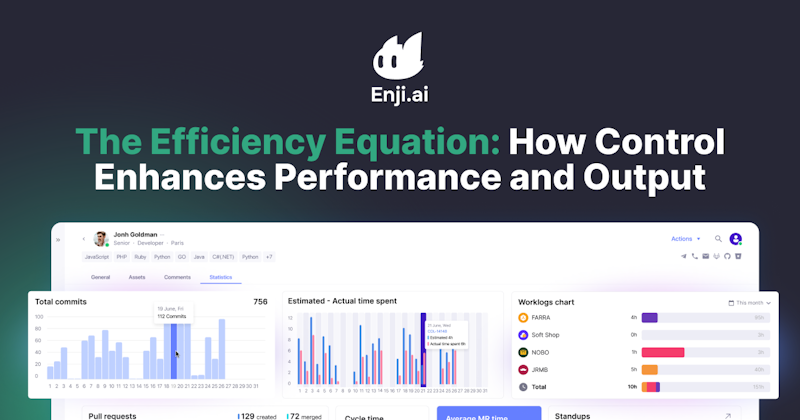Performance Management Glossary: Key Terms
Definition of Transformational leadership
What is transformational leadership?
Transformational leadership is a dynamic and empowering approach that focuses on inspiring people to go beyond expectations, embrace change, and pursue personal and professional growth. Instead of leading through authority or incentives, transformational leaders lead with vision, trust, and authentic influence. They encourage creativity, support autonomy, and foster a strong sense of shared purpose within the team or organization.
This leadership style is especially powerful in fast-changing or uncertain environments. Transformational leaders help their teams stay focused, resilient, and aligned with long-term goals.
Transformational leadership vs. transactional leadership: what's difference?
The transformational approach is often compared to transactional leadership. While both styles can be effective, they differ significantly in focus and approach:
Transformational leadership centers on driving change by inspiring people to go beyond routine and embrace innovation. It relies on enthusiasm, vision, and intrinsic motivation (like personal growth, pride, and a shared sense of purpose). Authority comes from a leader's charisma and ability to inspire, and the focus is on long-term success through commitment and cultural transformation.
In contrast, transactional leadership is built around structure, stability, and clear expectations. It motivates through external rewards, such as bonuses or promotions, and is grounded in a leader's formal position and control over consequences. This style emphasizes short-term results and adherence to established processes.
Both styles have their place, but transformational leadership is particularly effective in dynamic, fast-changing environments where adaptability, engagement, and continuous growth are key.
How does transformational leadership work?
Transformational leadership is built on several key characteristics:
Visionary thinking: Leaders clearly communicate a compelling vision that inspires others to follow.
Emotional intelligence: They connect with people on a personal level, showing empathy and building trust.
Individualized support: Team members receive coaching and encouragement based on their unique strengths and goals.
Intellectual stimulation: Leaders challenge assumptions, invite new ideas, and promote creative problem-solving.
Lead by example: They model the values and behaviors they expect from others, earning respect and credibility.
By creating an environment of trust, innovation, and shared purpose, transformational leaders help people reach their potential and often achieve results beyond what traditional leadership styles can deliver.
Why is transformational leadership important?
In today's complex, fast-paced work environments, transformational leadership drives long-term success by fostering high levels of engagement, adaptability, and collaboration. Teams led by transformational leaders tend to be more motivated, resilient, and aligned with the organization's mission.
This leadership style is especially effective in times of change, such as scaling a business, adopting new technologies, or navigating uncertainty. It not only helps achieve business outcomes but also promotes a positive, growth-oriented culture that attracts and retains top talent.
How do Enji support transformational leadership?
Enji helps transformational leaders lead with insight, clarity, and real-time visibility into team and project dynamics. The platform supports this leadership style in several key ways:
- Clarity of vision: Dashboards and reports help leaders clearly communicate goals and track progress, aligning teams around shared outcomes.
- Individualized support: Enji's Worklogs and productivity insights allow leaders to understand each team member’s contributions and needs, enabling personalized feedback and development.
- Empowerment through transparency: With Employee Profit team members can see how their work contributes to larger goals, increasing ownership and motivation.
- Data-informed decisions: Leaders can rely on real-time data to identify issues early, celebrate achievements, and continuously improve team performance.
By turning data into meaningful insights and surfacing what matters most, Enji enables leaders to inspire, support, and grow high-performing teams, hallmarks of transformational leadership.
Key Takeaways
- Transformational leadership is a powerful style centered on inspiring and motivating teams to grow, innovate, and exceed expectations.
- Unlike transactional leadership, which relies on structure and external rewards, transformational leaders guide through vision, trust, and emotional connection. They focus on long-term success, cultural change, and individual development.
- This leadership style works through core traits like visionary thinking, emotional intelligence, personalized support, and leading by example. It fosters a high-trust environment where creativity and ownership thrive.
- Transformational leadership is especially important in fast-paced or changing environments, helping organizations stay agile, engaged, and aligned with their mission. It builds resilient, motivated teams and creates a culture of continuous improvement.
- Enji supports this leadership style by giving leaders real-time visibility into performance, helping them communicate goals clearly, understand individual contributions, and act on data to keep teams aligned and motivated. It turns insight into action, empowering leaders to lead with clarity, empathy, and impact.
Last updated in June 2025


